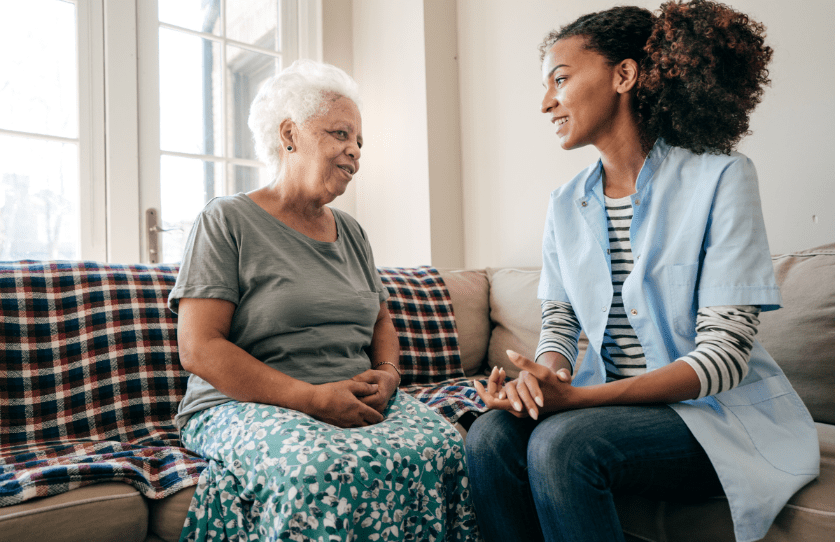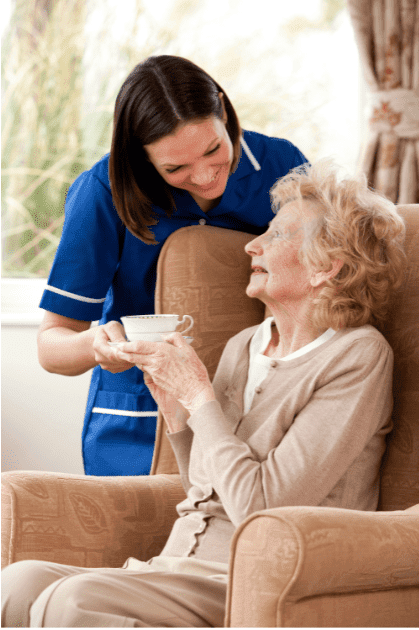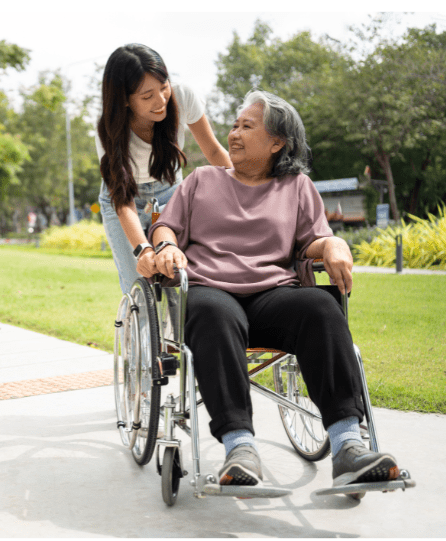It’s critical to have the help of family, friends, and professional carers
Introduction to caring for an elderly person
Caring for an elderly person can be one of the most rewarding experiences, yet it often comes with its own set of challenges. Whether it’s a parent, grandparent, or another loved one, providing support and assistance requires time, energy, and patience.
It’s important to understand the physical, emotional, and financial demands that come with caring for an elderly person, and to have a plan in place to address them.
This guide will provide an overview of the key aspects of caring for an elderly person, including the importance of support systems, understanding their needs, and managing your own well-being.
As much as we want to do it all ourselves, the reality is that taking care of someone who needs help can feel like a full-time job.
It’s easy to become overwhelmed by responsibilities like managing medications, coordinating doctor’s appointments, and assisting with daily activities. It’s important to remember that you don’t have to do it all alone.
Building a support system is crucial for both you and the elderly person you are caring for. This can include family members, friends, neighbors, or outside resources such as home health aides or support groups. Having a network of people to turn to for help and advice can alleviate some of the stress and burden of caregiving.

The first step in caring for an elderly person is understanding their needs. This includes physical, emotional, and social needs. It’s important to communicate openly and regularly with them about their health conditions, medications, and any changes in their daily routines.
Physical needs may include assistance with tasks such as bathing, dressing, feeding, and mobility. It’s important to respect their independence and involve them in decision making as much as possible.
Emotional needs can be just as important as physical needs. Many elderly individuals may feel isolated or lonely due to limited mobility or loss of loved ones. Providing emotional support through regular visits, phone calls, or engaging in activities they enjoy can greatly improve their well-being.
Lastly, social needs are also essential for an elderly person’s mental health. Encourage them to stay
Caring for an elderly loved one can be both a rewarding and challenging experience. As our family members age, they often require more assistance with daily tasks, medical needs, and emotional support. This transition can feel overwhelming for many caregivers who juggle their own responsibilities while trying to provide the best care possible.
The journey of home care is not meant to be walked alone. The importance of having a solid support system cannot be overstated—family and friends play crucial roles in this process, bringing comfort and relief when times get tough. Additionally, professional carers offer specialized skills that ensure your loved one’s well-being.
Understanding how these different layers of support work together is key to creating a sustainable caregiving environment. Let’s explore the vital roles each facet plays in enhancing the quality of life for those we cherish most.
With teamwork at play in home care situations, everyone benefits from shared responsibilities and emotional backing.
The challenges of being a full-time caregiver
Being a full-time caregiver can be overwhelming. The demands are constant, and the emotional toll can be heavy. Caregivers often juggle multiple responsibilities daily, from administering medications to providing companionship.
Physical exhaustion is another challenge. Lifting or assisting elderly individuals with mobility issues may lead to strain or injury. It’s easy for caregivers to neglect their own health amid these tasks.
Isolation often creeps in too. Many caregivers find themselves cut off from social activities as they focus solely on their loved ones’ needs. This lack of personal time can foster feelings of loneliness and frustration.
Caring for someone also comes with its share of unpredictability. Health conditions can change rapidly, leaving caregivers scrambling to adapt their routines on short notice.
These challenges highlight the need for support networks that can help ease the burden while ensuring that both caregiver and recipient receive proper care and attention.

The importance of having a support system

Having a strong support system is essential for anyone caring for an elderly person. It can alleviate feelings of isolation and stress that often accompany caregiving. Friends and family can provide not just emotional backing but also practical help.
Sharing responsibilities, even small tasks like grocery shopping or companionship during doctor visits, makes a significant difference. Engaging loved ones in the care process fosters connection and understanding among everyone involved.
Support groups offer another layer of assistance. They create spaces where caregivers can share experiences, challenges, and advice with others who truly understand their journey. These interactions validate feelings and reduce the sense of burden.
Moreover, knowing you are not alone encourages self-care practices that keep caregivers healthy both physically and mentally. Balancing personal needs with caregiving duties becomes more manageable when there’s a reliable network to lean on.
Hiring professional carers: Benefits and considerations
Benefits
- Ease the burden on the family
- Experience with the elderly
- Expertise in caring for others
- Flexibility in scheduling
- Allows the family members to manage your own responsibilities whiles knowing that your loved ones is in capable hands
- Provide comprehensive support
Considerations
- Compatibility between the carer and your relative
- Cost
- Home Care Services lead to long-term savings by preventing hospitalisation or nursing home placement
- Assessing qualifications/references to ensure that you choose a service provider who aligns with your family values and expectations
Conclusion: Caring for the elderly is a team effort
Caring for the elderly is a team effort. The journey of supporting an aging loved one can be challenging and emotionally taxing, which is why having a strong support system in place is essential.
Family members, friends, and professional carers all play vital roles in ensuring that seniors receive the care they need while maintaining their dignity and quality of life.
By collaborating with others, caregivers can share responsibilities and lighten the load. This teamwork not only benefits the elder but also provides respite for those directly involved in caregiving duties. It fosters an environment where everyone feels valued and supported.
Hiring professional home care services offers additional advantages as well. Trained carers bring expertise to personal care tasks, therapy needs, or companionship. They help create a balanced approach that enhances both physical health and emotional wellbeing.
Whether you are family or professionals working together, remember that caring for an elderly person requires patience, compassion, and understanding from all parties involved. Embracing this collaborative spirit will ensure that your loved ones thrive during their golden years.
